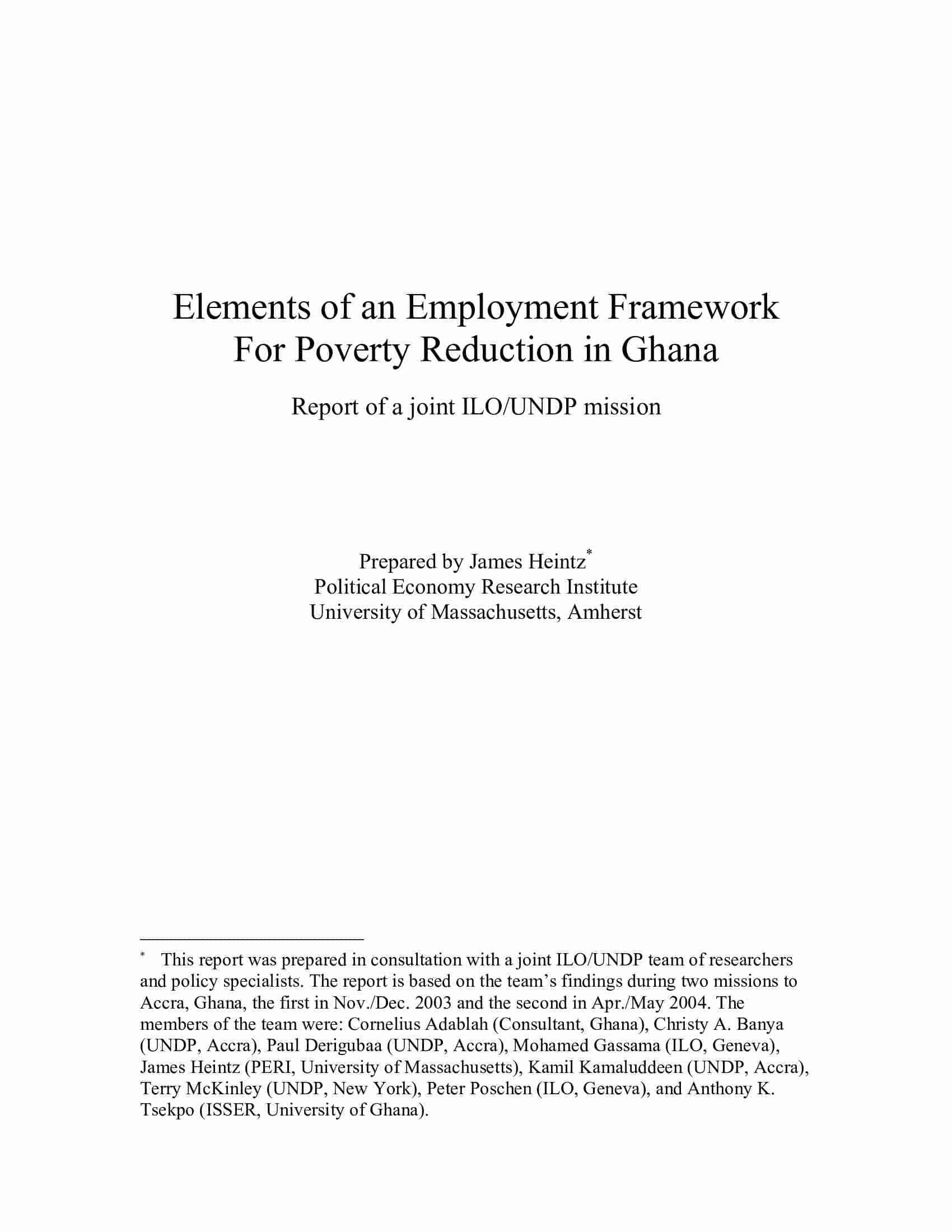Elements of an Employment Framework for Poverty Reduction in Ghana
When employment expands along with production, the benefits of growth will be widely shared. In particular, improving the quality and quantity of employment opportunities directly links economic growth to poverty reduction. The Ghana Poverty Reduction Strategy (GPRS) is currently Ghana’s blueprint for growth, poverty reduction, and human development. It represents the framework the Government of Ghana adopted to foster economic growth and fight poverty. In view of the critical importance of employment for sustained poverty reduction, there is a need to review the content of the GPRS with specific attention to the issue of employment. To this end, a joint ILO/UNDP team was set up to study the employment initiatives, programmes, and projects that the Government of Ghana is currently pursuing within the context of the GPRS. The study had three primary objectives: (1) to examine the current content and implementation of the GPRS with regard to employment; (2) to identify challenges for realizing the employment objectives of the GPRS and the programmes that were developed in the course of implementing the Strategy; and (3) to develop recommendations for strengthening the employment content of the GPRS to support poverty-reducing growth.
View list of all: Research Reports

